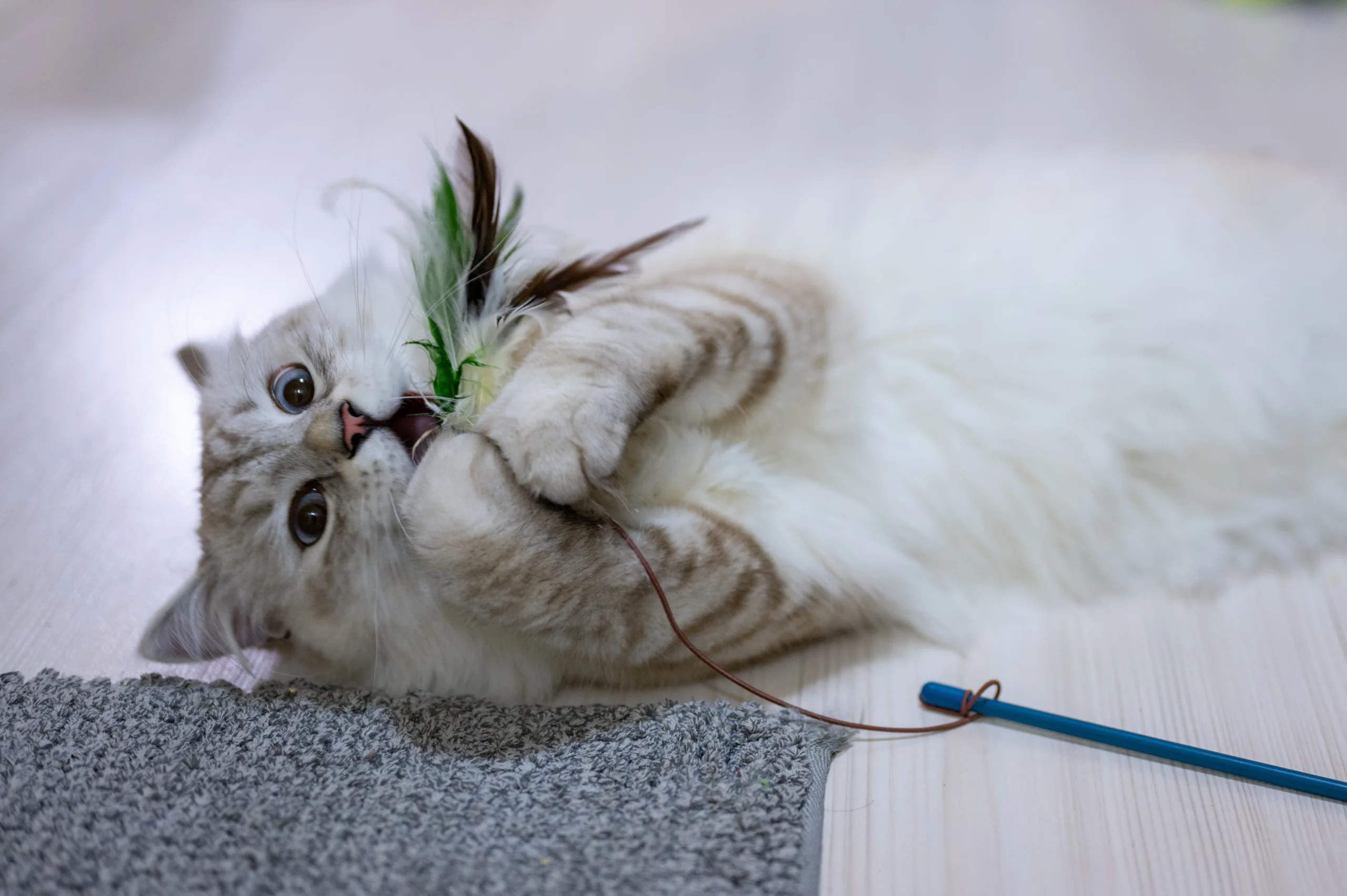Do Cats Growl When They Play? Cats are known for their complex and often enigmatic behaviors. Among these behaviors, growling is one that can be both puzzling and intriguing for cat owners. While growling is commonly associated with aggression or fear in many animals, including cats, it’s essential to understand that cats can also growl while playing. In this article, we will delve into the reasons behind a cat’s growling during playtime and provide insights into distinguishing between playful growling and other types of growling behaviors.
For more about cats click here
The Playful World of Cat Growling
When we think of growling, we typically associate it with warning signs or defensive behavior. However, cats have a unique way of expressing themselves, and their vocalizations can vary significantly based on their emotions and intentions. Playful growling is one such vocalization that cats use during interactive and exciting play sessions.
Why Do Cats Growl When Playing?
- Mimicking Predatory Behaviors: Cats are natural hunters, and playtime is an outlet for them to mimic hunting behaviors. Growling during play is reminiscent of the sounds they make when stalking prey in the wild. It’s a way for them to engage in the role-playing aspect of the game.
- Expressing Excitement: Cats often growl when they are highly stimulated and excited. Playtime triggers a surge of adrenaline, and growling is their way of expressing their enthusiasm.
- Communication: Growling during play can also serve as a form of communication between cats. When playing with another cat or even a human, a growl can signal the intent to continue the play or a signal to back off slightly.
- Social Bonding: Cats engage in play not only to satisfy their hunting instincts but also to bond with their playmates. Growling can be a part of this bonding experience, indicating that they are enjoying the interaction.
Distinguishing Playful Growling from Aggressive Growling
It’s important to differentiate between playful growling and growling associated with aggression. Here are some key distinctions:
1. Body Language:
Playful growling is usually accompanied by relaxed body language. The cat’s tail may be up or wagging, and their overall posture is loose and fluid. On the other hand, aggressive growling is often accompanied by tense body language, flattened ears, and a puffed-up tail.
2. Vocalization Tone:
Playful growling has a higher-pitched and more playful tone. Aggressive growling tends to be lower and more guttural, often accompanied by hissing.
3. Pupil Dilation:
During play, a cat’s pupils are usually dilated due to excitement. In aggressive situations, pupils may dilate due to fear or threat.
4. Playful Intent:
During playful growling, cats may engage in actions like pouncing, chasing, or swatting without causing harm. Aggressive growling is often followed by aggressive actions aimed at causing injury.
Understanding Your Cat’s Playful Growling
As a cat owner, it’s essential to observe your cat’s overall behavior and context when they exhibit playful growling. Understanding their body language, vocalization tone, and play style can help you interpret their intentions accurately. Playful growling is a healthy and normal part of a cat’s playtime, indicating their engagement and enjoyment.
FAQs About Cats’ Playful Growling
Q1: Why did my cat growl while playing? Cats growl while playing to mimic predatory behaviors, express excitement, communicate, and engage in social bonding.
Q2: Can cats playfully growl? Yes, cats can growl playfully during interactive and exciting play sessions.
Q3: How do you tell if a cat is angry or playing? Pay attention to body language, vocalization tone, pupil dilation, and play style. Relaxed body language and higher-pitched growls are usually indicative of play.
Q4: Do cats growl when play fighting? Yes, cats may growl while play fighting to express excitement and mimic hunting behaviors.
Q5: Do cats growl when happy? Yes, cats can growl when they are excited and happy during playtime.
Q6: Is it OK if my kitten growls while playing? Yes, it’s perfectly normal for kittens to growl during play. It indicates their engagement in play and learning social behaviors.
In conclusion, cats’ growling behavior during playtime showcases their unique and adaptable communication skills. Playful growling is a testament to their instinctual hunting behaviors and their ability to bond with playmates, be they feline friends or human companions. As cat owners, understanding and appreciating this aspect of feline behavior can enhance the enriching play experiences we share with our furry friends.
Click here for more
